"At the start of the game I had information from home about how many people were there. So we thank them for keeping their fingers crossed for us, I guess it was worth something and hopefully one day we will be proud to be Czech again and that it won't be just because of hockey," Ivan Hlinka said after winning gold medals at the 1998 Nagano Olympics.
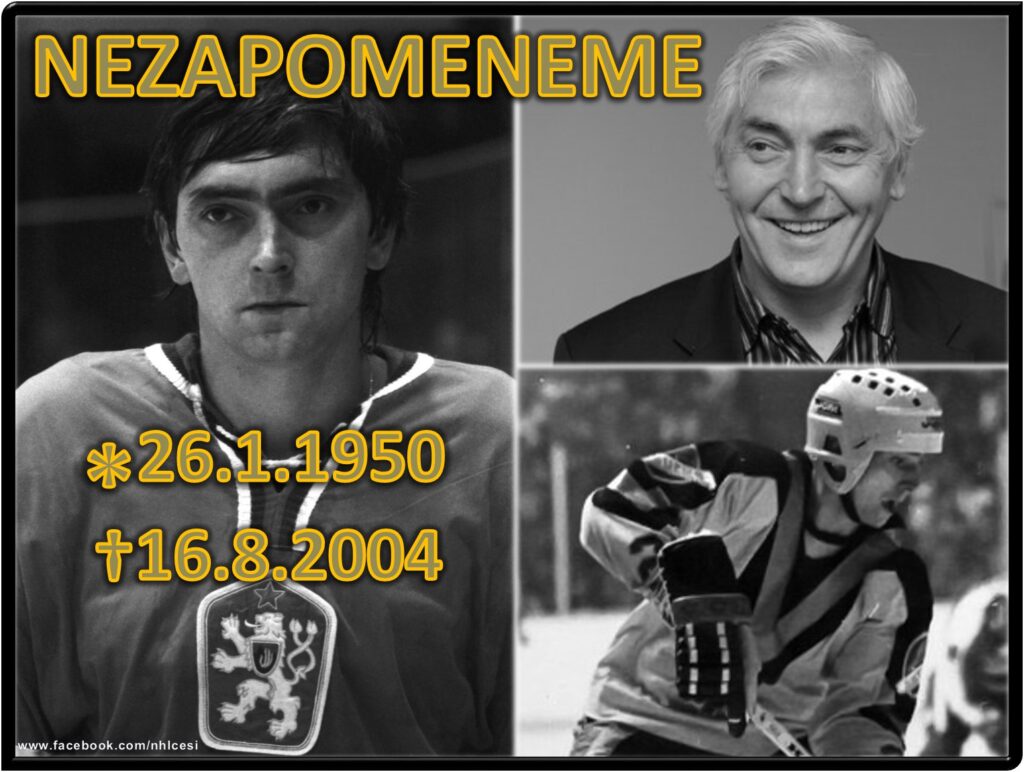
In Litvínov the date 26 January 1950 is written in golden letters. And not only there - it is one of the most important days in the hockey history of Czechoslovakia and later the Czech Republic. Ivan Hlinka, one of the greatest legends of our hockey, was born in Most. A fantastic player and a fantastic coach, who might have contributed to other successes if...
If he had not met the truck on 16 August 2004 on the I/6 road between Karlovy Vary and Olšové Vraty. But that's speculation and mostly skipping almost 20,000 days.
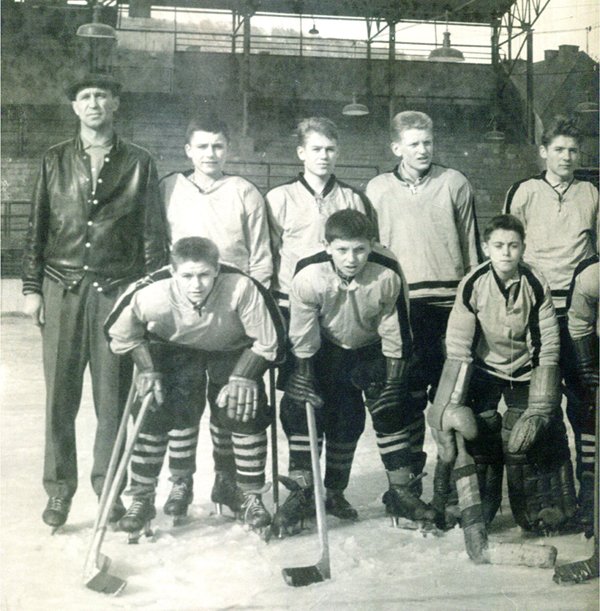
Twenty-year-old captain
He started playing hockey at the age of six in Litvínov. Already at the age of 16 he started to make his way to the first league team. He made his debut on 14 December 1966 against Pardubice and scored four goals in 14 games. In his second season he started to shine. At the age of 18, he finished the 1967/68 season with 15 goals, making him Litvínov's third top scorer.
In his third season he scored 21 goals, and as a 19-year-old he made his first appearance for Czechoslovakia. His fourth season (1970/71) was a turning point for him. At the age of 20 he became captain of Litvínov and for the first time became the club's top scorer, which he was every season from that season until 1978.
In the highest Czechoslovak competition, he had his best year individually in the 1974/75 season. He scored 36 goals in 44 games and dominated the scoring in the competition. He scored an incredible 78 points and was also the best passer in the Czechoslovak league. For the first time, he pulled the Chemiks into the top half of the table - even two points behind the bronze medal-winning Jihlava Soldiers.
In the following seasons, Hlinka was picking up points on the treadmill, but the team was not doing so well. When the historic 1977/1978 season came, the almost always sold-out Litvínov stadium witnessed not only the first double-digit win in the top competition (10:0 against Košice), but also the first silver medals in a direct duel with the third-placed Sparta from Prague in the last round. Poldi SONP Kladno won their fourth title in a row. Hlinka narrowly missed out on the "royal" crown with 75 points (32+39) in 43 games played. Only Milan Nový of Kladno was better (40+35).
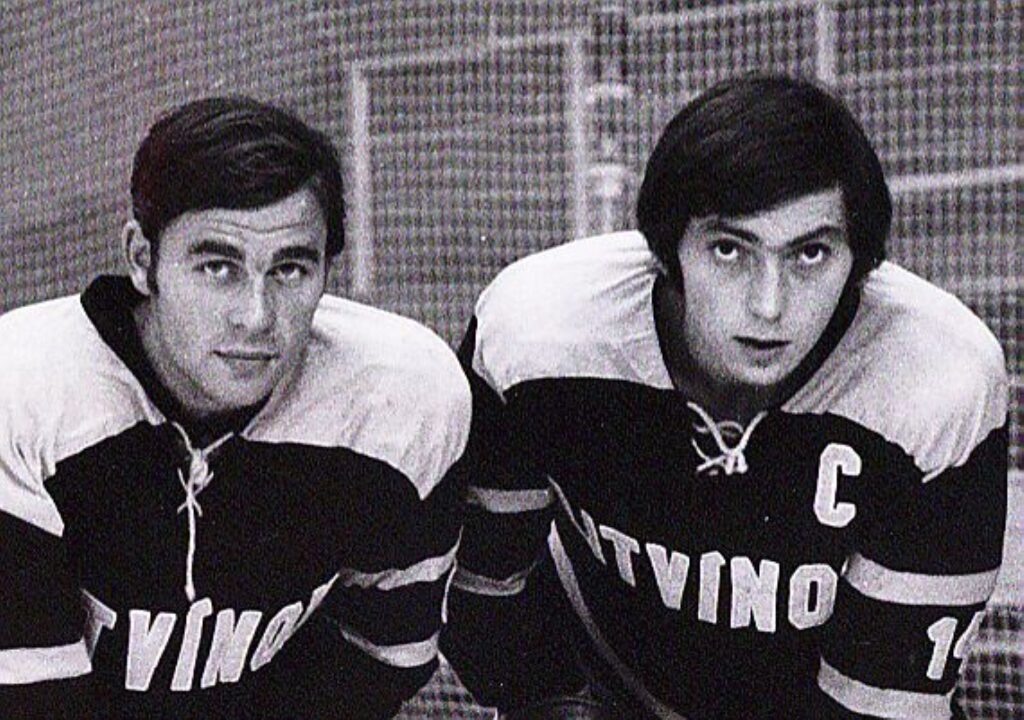
In 1978 he won the Golden Hockey Stick - a prestigious poll awarding the best Czechoslovak or Czech hockey player of the year. The year before, he was the first Litvínov player to finish second among the top three. His "twin brother" Bubla has two bronzes from 1978 and 1979.
He played 15 seasons in Litvínov with a "green" break in Dukla Trenčín, the last one coached by František Dům.
Back to Litvínov via NHL and Switzerland
Then he and teammate Jiří Bubla, a day younger, became the first Litvínov players in the NHL. Hlinka made his NHL debut on October 6, 1981, for the Vancouver Canucks against the Colorado Rockies. Two days later he made his first assist on a goal against the Calgary Flames and the very next day he scored his first goal himself - against Edmonton Oilers goalie Andy Moog. In his first season, he became the first Czechoslovakian to reach the Stanley Cup Final. But he was a toy and the tough NHL didn't suit him, unlike Bublé, who dared to score on a big star like Wayne Gretzky...
During his two years overseas, the native of Most made a great name for himself. He played 137 games and accumulated 123 points (42+81), in 16 playoff games he scored 13 points on three goals and 10 assists. However, he had to return to Europe due to back problems. He finished his career with the Swiss team EV Zug, which he coached - František Dům. In two years there he scored 76 goals and 86 assists in 80 games.
Then he returned to Litvínov, but to the role of assistant head coach, which was - František Dům. In September 1985 they stood together for the first time on the bench against Dukla Trenčín. The 1985/1986 season was wonderful for the North Czechs. After the regular season they finished second, and there was talk of a title in town. The great team relied mainly on offense. Vladimír Růžička was the league's top scorer, ably followed by Petr Rosol, Vladimír Jeřábek, Jindřich Kokrment, Miloš Tarant, Josef Chabroň and Vladimír Kýhos. František Procházka, Arnold Kadlec and Jordan Karagavrilidis were the defensive stalwarts. In the quarter-finals, the chemists swept Škoda Pilsen in three games, but in the semi-finals they were eliminated in overtime by Dukla Jihlava. The final fourth position was disappointing, but the next season was looked forward to with great expectations.
Younger ones, make room for the older ones
Litvínov, however, was in a great depression in the autumn of 1986, after sixteen rounds it had only six points (only two points for a win at that time), it finished the regular season with a four-point deficit to the penultimate Trenčín, and the eighth place, held by České Budějovice, which guaranteed a promotion to the play-offs, was even ten points behind.
Many teams would have changed coaches, but something else happened in Litvínov - Hlinka jumped into the 3rd round of the playoffs on January 11. With the unusual number 9, which was, however, indicative of a veteran, because the number 9 was worn by Gordie Howe, a symbol of hockey longevity in the NHL. And to make matters worse, it happened on the Trenčín ice under Matúš Čák's castle, where Hlinka knew it. Litvínov was incredibly lifted by the legend's presence, notching six wins and two draws in its first eight games. It was the best team of the competition in the extra-leg, but did not qualify for the play-offs. The subsequent struggle in the group for survival was not dramatic from the Yellow and Black's point of view, they celebrated their salvation two rounds before the end of the season. Hlinka played 19 games and scored 23 points (5+18).
At that time Hlinka saved his team in the league, but another "veteran" returned his team to the first league. Mr. Milan Novy, a shooter in his 30s, played in Washington, Zurich and Vienna before he came back to Kladno, which in the 1986/87 season was relegated from the second highest league. Novy contributed 35 goals and 40 assists in 43 games. He stayed at the excellent level for two more years, meeting even Jaromír Jagr in the booth.
In those days in hockey, I guess it was what it said in the public transport...
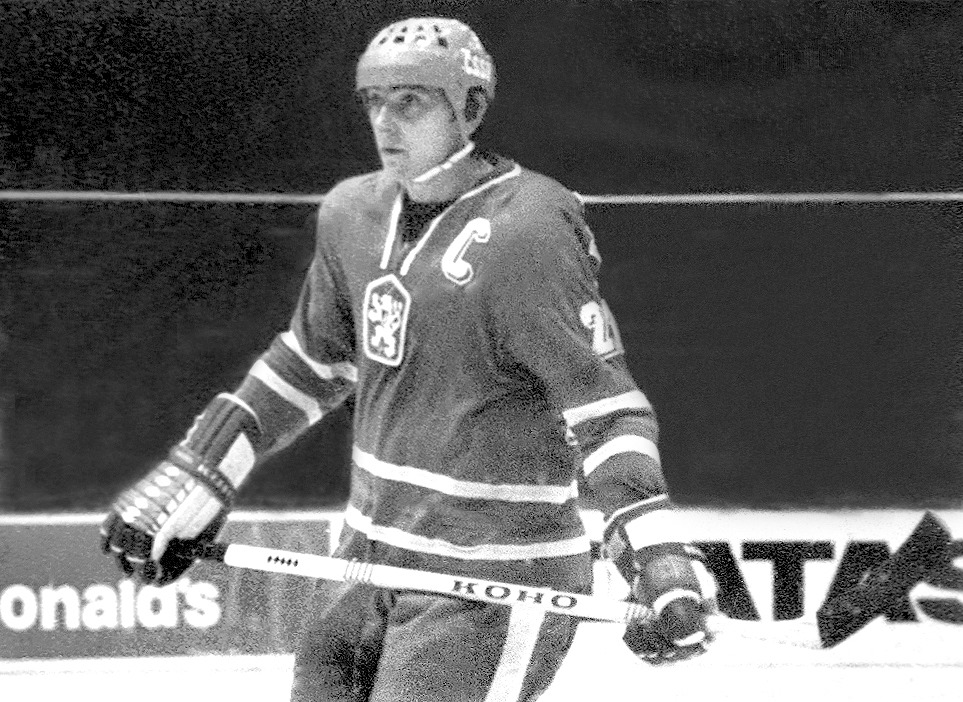
What a tournament, what a medal
In the jersey with the lion on his chest, he went from success to success. He made his debut at the age of 19 and before he quit national hockey, he collected an incredible 14 medals!
He participated in 11 World Championships and took home a medal from each one. Three gold (1972, 1976 and 1977), five silver (1971, 1974, 1975, 1978 and 1979) and three bronze (1970, 1973 and 1981). He was also at the Winter Olympics twice and also did not go home without a medal. In 1972 he took bronze from Sapporo, Japan, and four years later he brought home silver from Innsbruck.
And he won another national medal at the 1976 Canada Cup. With the Czechoslovakia team he reached the final, where our team lost to Canada 5:4 after overtime.
From 1977 to 1980 Ivan Hlinka was the captain of the national team. He played a total of 256 games for Czechoslovakia and scored an incredible 132 goals.
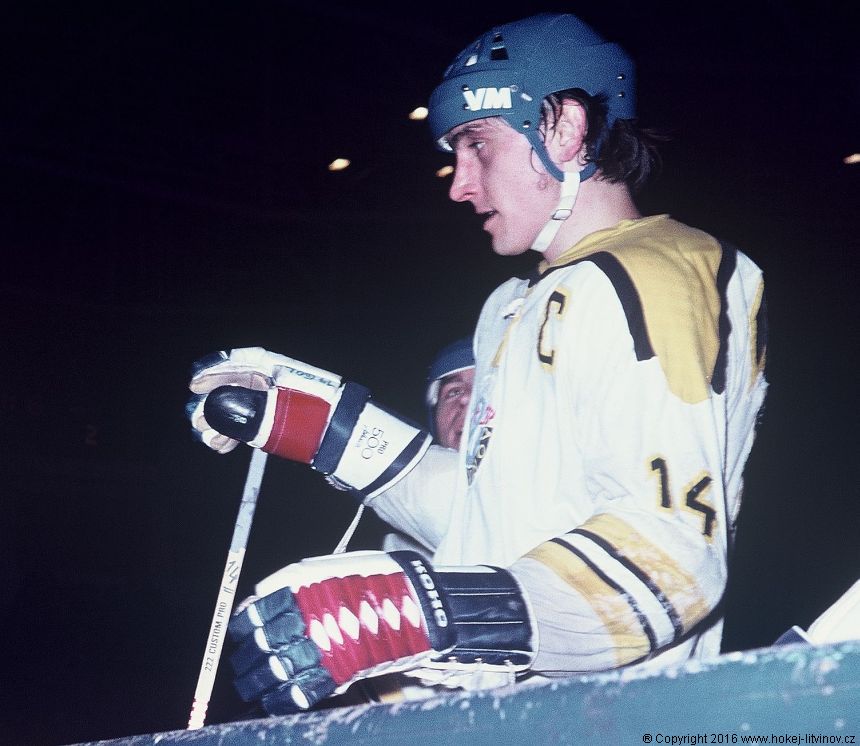
Litvínov silver also as a coach
Hlinka's next stint in life was already a bit of a bite - two years in Litvínov as an assistant, then as a coach. He had a brief episode in the autumn of 1989 in Freiburg, West Germany. But it was not a very successful stint. Freiburg suffered debacles and after twelve rounds had only two points. When they lost 3:15 in Rosenheim on 5 November, the coach and the management agreed that there was no point in going any further. He returned to Litvínov and took them to the semi-finals. The talented Robert Reichel stood out that year, scoring 48 goals and moving overseas after the season.
In 1991, Litvínov even reached the play-off finals, but fell to Dukla Jihlava, who won their last title. The team was composed of players who later became legends or at least icons - Robert Lang, Martin Ručinský, Josef Beránek and Jan Čaloun.
Bronze Age and then...
Ivan Hlinka became coach of the national team in 1991 and the following year he won bronze medals with the Czechoslovak team at the World Championships in Prague and Bratislava. In 1992, however, he also led Czechoslovakia to a medal at the Winter Olympics held in France, and again it was a bronze.
After the split, he won bronze with the independent Czech team at the 1993 World Championships, but the following year was the worst in our history at that time. At the World Championships our team finished seventh, and at the Olympics in Norway fifth. It was after this failure that Hlinka quit as coach of the national team for the first time.
Subsequently, the native of Most became the general manager of Litvínov and also became the head of the hockey federation. After three years, however, he returned to the national team again, probably unaware that he was about to experience probably the biggest success of his career.
In 1997, at the World Championships in Finland, the Czech Republic won "only" bronze.
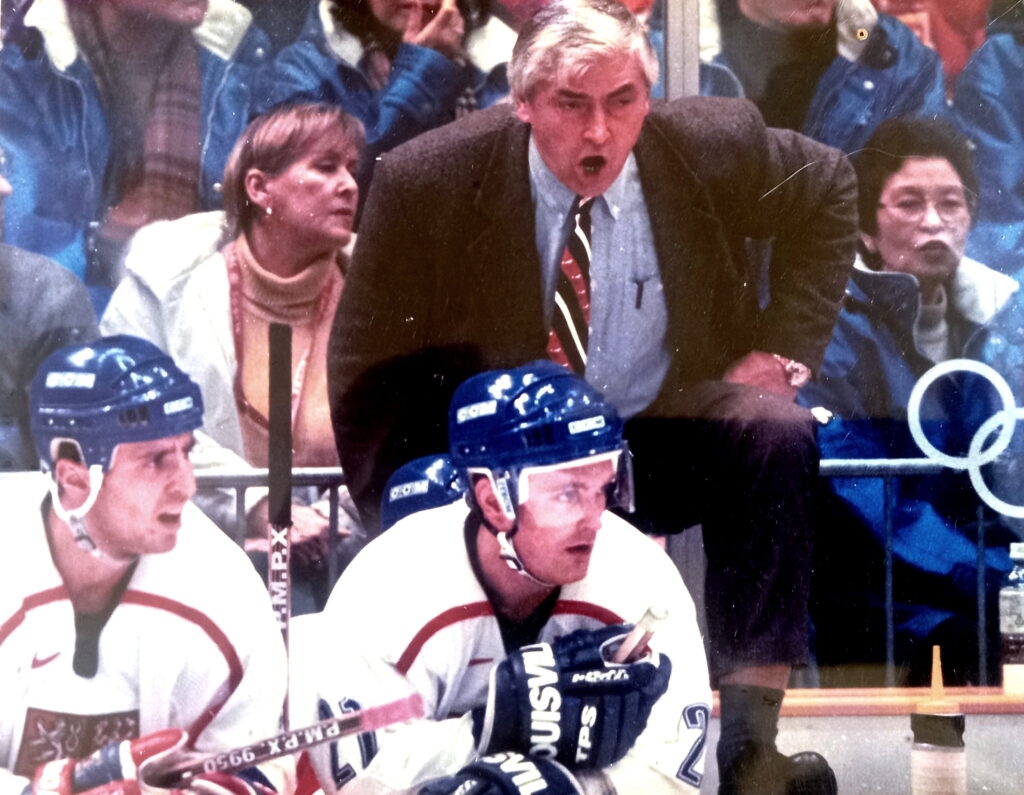
...then the golden Nagano
The year 1998 became a fairy tale year and went down in the history of the whole country as one of the most significant. The team, one third of which was made up of Litvínov's offspring, managed to win gold medals at the Winter Olympic Games in Nagano under Ivan Hlinka! It was a great success especially for the Litvínov fans - the team was coached by Litvínov icon Ivan Hlinka, and the national jersey was worn by Vladimír Růžička, Robert Reichel, Josef Beránek Jr, Martin Ručinský, Jiří Šlégr, Petr Svoboda, Robert Lang and Jan Čaloun.
At the World Championships held in the same year, the Czech Republic finished bronze again, but in 1999 we became World Champions and started our successful journey to the golden hat trick! Hlinka became the first person in our hockey history to win gold as a player and as a coach. In that year, Ivan Hlinka was also honoured by President Václav Havel, who awarded the legend of not only Litvínov hockey with the Medal of Merit III degree.
However, nothing ended there. In February 2000, the Most native said goodbye to the national team and at the end of the season he moved overseas for the second time in his life, this time as a coach. He was chosen as head coach by the Pittsburgh Penguins, where he had many players from the Czech Republic under his command. Among them were Jaromír Jágr, Robert Lang, Martin Straka, Jan Hrdina, Josef Beránek, Jiří Šlégr, Roman Šimíček, Michal Rozsíval, František Kučera, Josef Melichar and Milan Kraft.
He was appointed head coach from the new season, but after three months there was an unexpected change. The club's owner Mario Lemieux became striker Mario Lemieux. A thing no coach in NHL history has had to deal with. And he didn't do badly his first season. He led the team to the Eastern Conference Finals, the best finish in years. However, before the second season, the club got rid of Jaromir Jagr, which weakened Hlinka's team and the team from Pennsylvania did not fare well. Because of this, Hlinka was released during the season. He is still the last European coach in the NHL.
From 2001 to 2002, Hlinka served as general manager of the Czech national team. After the Salt Lake City Olympics, he moved to the role of coach in Omsk, Russia. And in 2002, the acclaimed hockey strategist received further recognition. He was inducted into the IIHF Hall of Fame. Two years later, he was voted Hockey Legend of the Czech Republic and finished fifth in the poll for the best domestic hockey player of the century.
In 2004 he is also appointed as the head coach of our national team for the last time. In May he signed a three-year contract. However, he missed the first national team event with his team, as he tragically died in August from a car accident. It was a huge tragedy and time seemed to stand still in the Czech Republic. Our small state lost its hero forever, but he has gone down in history forever.
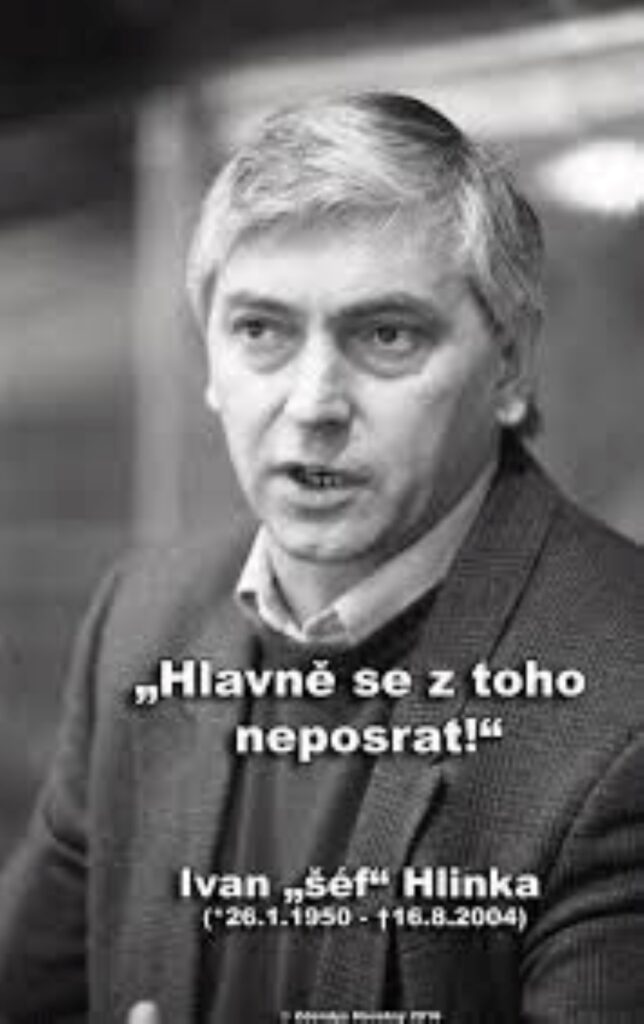
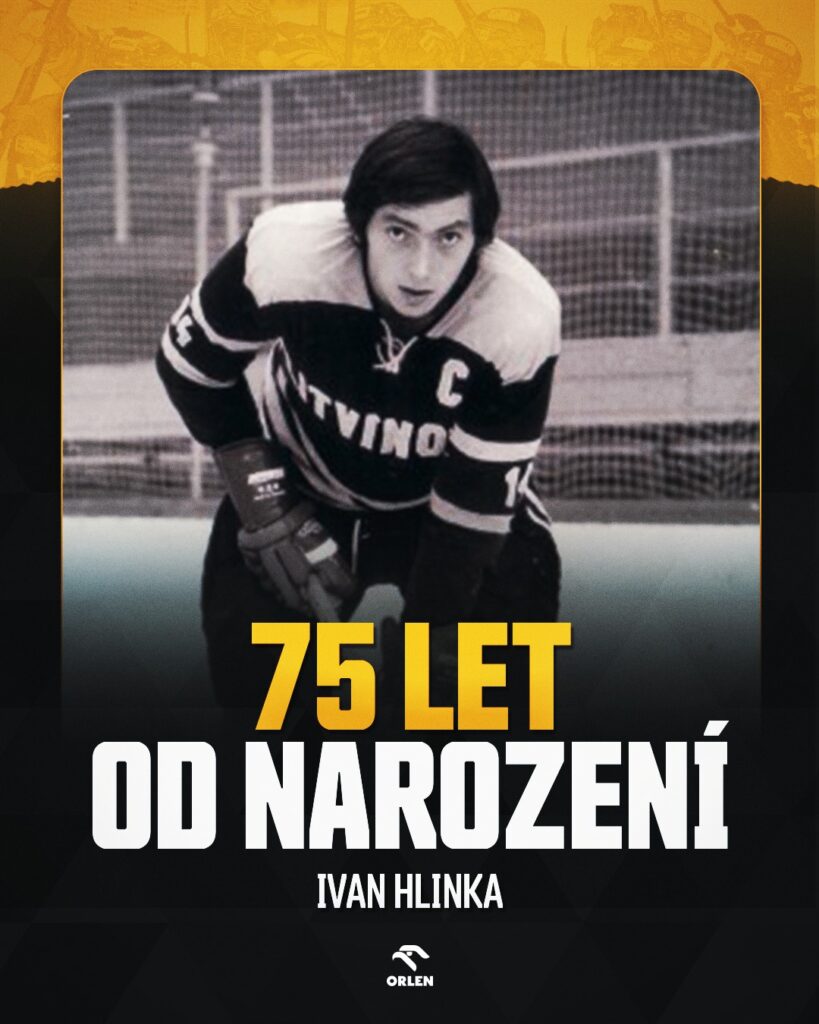
The same year, the Litvínov ice rink was named after him.
Its name - the "Hlinka-Gretzky Cup" is one of the best youth tournaments of today.
Ivan Hlinka also had enormous charisma. It seemed as if he was the chosen one. He could laugh, but he was also stern. He was fair and never fraternized with the players. He was able to win over his charges so that they would follow him. He could bring a team together to pull together. He could be incredibly human. And when things didn't work out? "Just don't fuck it up," He would say.
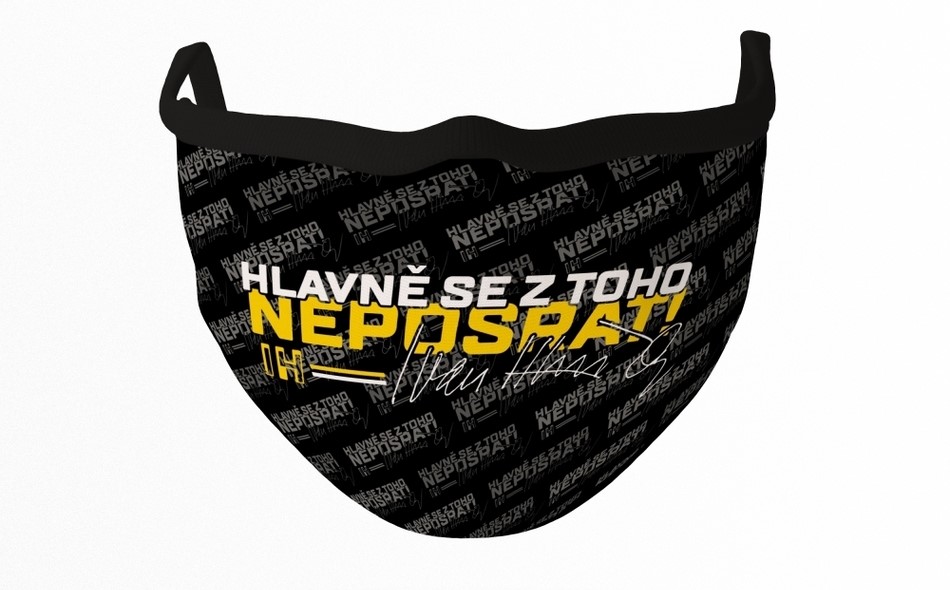
Wikipedia, Facebook, hcvl.cz/ gnews.cz - RoZ



